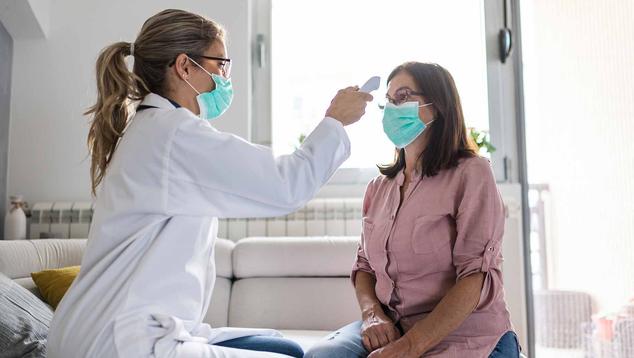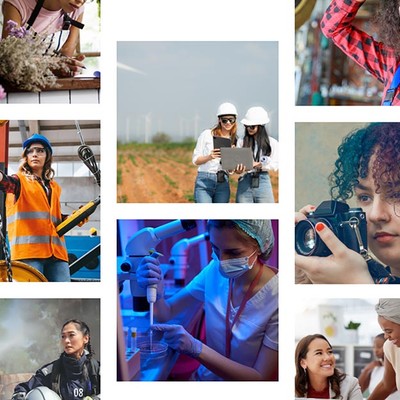Each year on International Women's Day, we turn the spotlight on the world's nearly 4 billion women. This year, it's impossible to do that without acknowledging how the COVID-19 pandemic has disproportionately affected all of these women's lives.
Faced with competing demands at work and at home, record numbers of women have left the workforce since the pandemic started, as childcare options became more limited and remote learning became the norm. According to data from the Bureau of Labor Statistics, roughly 2.3 million women in the U.S. have left the workforce since February 2020, compared with about 1.8 million men. Similar situations are playing out in countries all over the world.
To understand how to best support women as we move forward from this pandemic, we need to take a holistic look at their wellbeing. This includes their work life, of course, but also their family and friends, their finances, their communities -- and their health.
The investment is worth it. When women are thriving in multiple areas of their lives, they are more resilient in the face of challenges and are better able to take care of not just their own needs, but also those of others.
A Crisis for Women's Wellbeing?
Gallup's wellbeing research shows that a "life well-lived" depends on the balance of five elements:
- Career: You like what you do every day.
- Social: You have meaningful friendships in your life.
- Financial: You manage your money well.
- Physical: You have energy to get things done.
- Community: You like where you live.
The wellbeing equation is complex, and the pandemic has challenged every element of it -- from the loss of social and community ties to the difficulty of juggling work and family while fearing a potential financial setback.
Moreover, we know the pandemic's effect on women's wellbeing is likely to be felt long after schools reopen and if and when job growth returns. Because of delayed preventive and reproductive health services, women may experience higher morbidity for years to come. For instance, the World Health Organization warns that the number of cancer deaths will rise in the coming years because of the significant increase of delays in diagnosis and interruptions in treatment.
Good data on these effects are essential to finding workable solutions. However, the existing research paints an incomplete picture of women's health. It rarely captures women's personal experiences, let alone on a global scale.
Enter the Hologic Global Women's Health Index
Hologic, a global leader in medical technology and one of the main providers of COVID-19 tests, is looking to change this dynamic. Hologic is partnering with Gallup over the next three years to give women (and men) a platform to talk about women's health and help the world understand the full spectrum of it.
The Hologic Global Women's Health Index, which launched in 2020, is the first global comparative study of women's health -- from women's own perspectives. The goals of the index are to: listen to the world's women and men discuss women's health, create the world's definitive index for tracking progress, inspire world leaders, and impact change.
In the first year of the index, Gallup interviewed 120,000 women in 116 countries and areas in 40+ languages. The findings from the first study will be released later in 2021 and shared with global leaders and the rest of the world.
Listening Is the First Step. Driving Change Is the Goal.
The results from Hologic and Gallup's multiyear research project will have tremendous implications for organizations as women return to the workplace and to the broader world beyond the office.
Too often, wellbeing is dismissed in the business world because it is considered personal and therefore falls outside of the professional sphere. But wellbeing is, in fact, a critical driver of an individual's overall performance in the workplace. Thriving employees positively impact their organization's bottom line.
Gallup research finds that employees who are thriving in all five elements of wellbeing:
- are 36% more likely to report a full recovery after an illness, injury or hardship
- are more than twice as likely to say they always adapt well to change
- miss 41% less work as a result of poor health
Especially as COVID-19 reshapes our world and our workplaces, organizations will need to rethink their approach to wellbeing. Women will return to the workplace, and organizations will need to be prepared to become active partners in their employees' journey toward a life well-lived.





